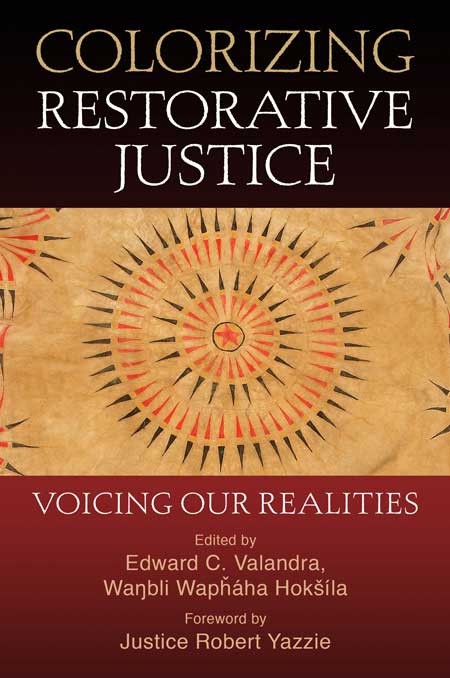RRC member Rochelle Arms Almengor, along with 19 other BIPOC (Black, Indigenous, People of Color) restorative justice practitioners and thinkers contributed to the much anticipated book, Colorizing Restorative Justice: Voicing Our Realities. The book was released in Summer 2020, and since then has garnered a lot of attention from the restorative justice North American community. Authors have made numerous appearances on social media, podcasts, webinars, book talks, and conferences since the book was released. Rochelle recently appeared in the Zehr Institute’s webinar featuring several authors. In addition, she has spoken about her chapter at the National Association for Community and Restorative Justice conference, the Roots Book Club, and will soon be featured on a new podcast by the National Center on Restorative Justice. In Spring 2021, with the help of RRC member Skye Roper-Moses, she and other contributors will present their work at book launch/discussion events for the New York RJ community, beginning with RJ practitioners of color.
The timing of the book has coincided with the rise of racial justice awareness and advocacy and BLM protests in the U.S. making it all the more urgent a read for anyone in RJ who is also accountable to race consciousness. For us in the RRC, it has been an incredibly validating tool since many of the themes by authors in the book overlap with our own very real and deep conversations about living the RJ life through under-represented lenses.

From the introduction, by Edward C. Valandra:
“The twenty authors of color in this book raise unsettling issues about restorative justice and restorative practices (RJ/RP), situated as they are in white supremacist settler societies that sustain deep roots in European invasion and colonizing. The contradiction between restorative practices and the Western, white supremacist, settler societies in which we practice them is inherent. We People of Color and Indigenous Peoples have not created the contradiction. It is there. But we collectively experience this contradiction in ways Whites do not. We feel an urgency about addressing this contradiction that our White settler colleagues seem not to perceive or express. We also feel an urgency about critically informing communities of color and Indigenous communities that this contradiction, while not of our making or choosing, is one we negotiate in restorative justice.”

